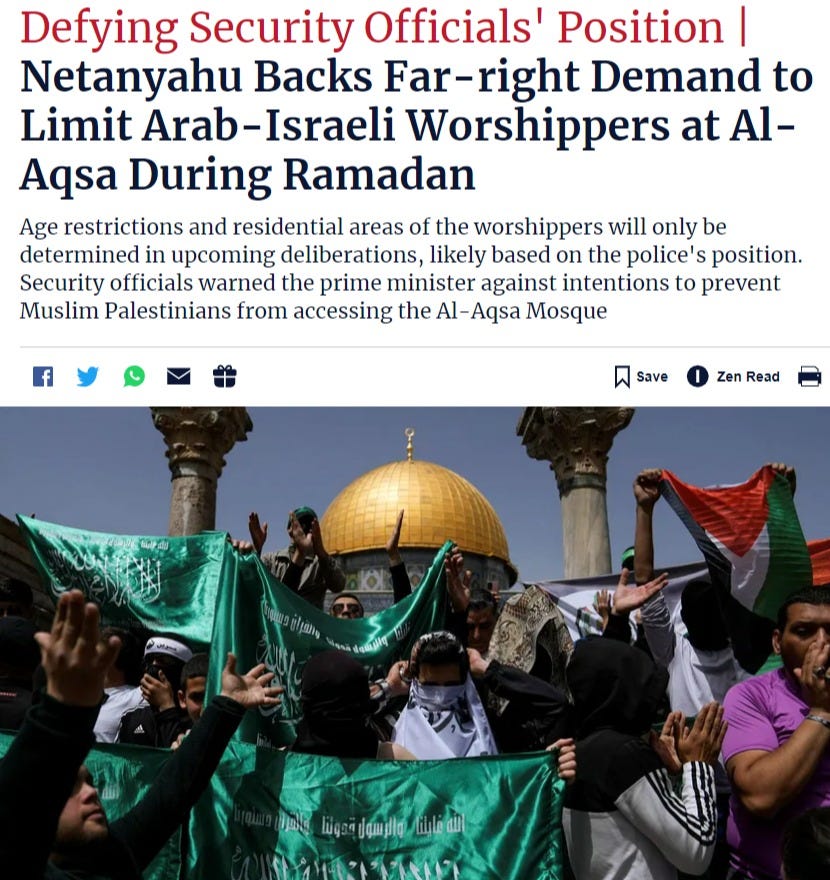Defying Security Officials' Position | Netanyahu Backs Far-right Demand to Limit Arab-Israeli Worshippers at Al-Aqsa During Ramadan
The BIG LIE IS, Netanyahu and Israelis claim that Solomon's Temple is buried underneath the Al Aqsa mosque and therefore Israel has a right to control the mosque
Age restrictions and residential areas of the worshippers will only be determined in upcoming deliberations, likely based on the police's position. Security officials warned the prime minister against intentions to prevent Muslim Palestinians from accessing the Al-Aqsa Mosque
Prime Minister Benjamin Netanyahu met on Sunday with ministers and senior offic…




